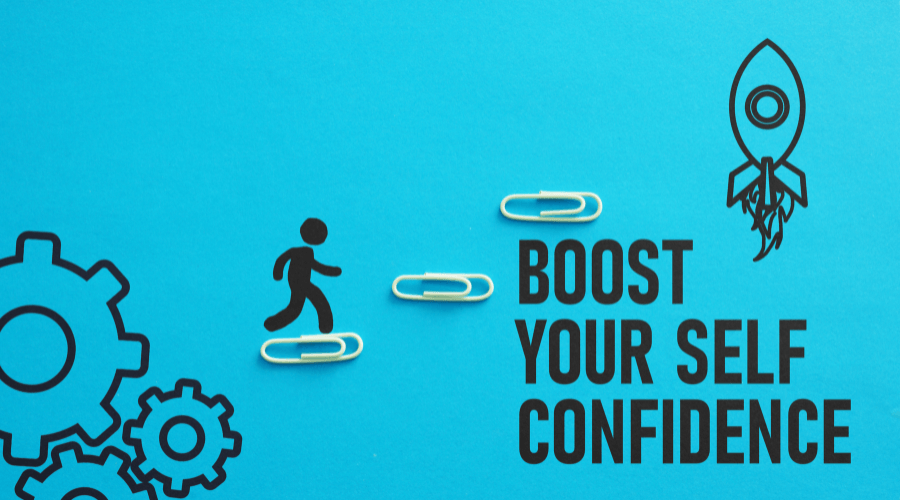Why Building Self-Confidence Is Important: Overcoming Obstacles and Empowering Growth
Have you ever wondered why some people seem to navigate life’s challenges while others struggle effortlessly?
The secret often lies in self-confidence.
Building self-confidence isn’t just about feeling good; it’s a crucial factor influencing your success, relationships, and overall well-being.
Believing in yourself makes you more likely to take risks, pursue your goals, and handle setbacks with resilience.
Self-confidence empowers you to step out of your comfort zone and seize opportunities from which others might be shy. It’s not just a trait; it’s a skill you can develop to transform your life.
Ready to uncover why building self-confidence is essential for personal and professional growth?
Let’s dive in and explore how boosting your self-belief can open doors. It bothers me that you didn’t think this was possible.
Understanding Self-Confidence
Self-confidence stems from a realistic sense of one’s abilities and trust in one’s potential. It empowers you to navigate challenges and pursue opportunities.

What Is Self-Confidence?
Self-confidence is the belief in your ability to accomplish tasks and face challenges.
A combination of self-assurance and self-respect influences your actions and decisions.
A confident person trusts their judgment and strives for goals despite obstacles.
- Past Experiences: Successes build self-confidence, while past failures can decrease it. Learning from both can create a balanced perspective.
- Self-Perception: Positive self-perception reinforces confidence, shaping how you see your capabilities.
- Support System: Encouragement from friends, family, and mentors can boost your self-belief.
- Skill Development: Mastery of relevant skills enhances confidence in performing specific tasks.
- Mental and Emotional Health: Mental well-being plays a critical role. Anxiety and depression can negatively impact confidence levels.
The Importance of Self-Confidence
Building self-confidence is crucial for thriving in various aspects of life. It shapes how you perceive challenges and opportunities.

Benefits in Personal Life
Self-confidence significantly impacts your personal life.
When you possess confidence, you are more likely to engage in social activities and form meaningful relationships. This can lead to a supportive social network that enhances your mental well-being.
Confident individuals tend to pursue personal goals and hobbies. You are motivated to learn new skills and develop talents when you believe in your abilities. This continual growth can result in a more fulfilling and enriched life.
Additionally, self-confidence helps in managing stress and adversity. When faced with difficult situations, a confident mindset aids problem-solving and composure. This resilience leads to better mental health and a positive outlook on life.
Advantages in Professional Settings
Self-confidence plays a pivotal role in professional environments. Confident employees are more likely to take initiative and assume leadership roles. When you trust your capabilities, you can make informed decisions that contribute to your organization’s success.
A confident demeanour also fosters effective communication. Belief in your own ideas encourages you to share them assertively in workplace interactions, promoting innovation and collaboration. This can enhance your reputation and career advancement prospects.
Moreover, self-confidence improves your ability to handle criticism and feedback.
If you maintain confidence in your work, you are more open to constructive critiques and can use them to improve performance. This adaptability is a crucial trait valued in professional growth and development.
Building Self-Confidence
Cultivating self-confidence is essential for thriving in various spheres of life. This section highlights strategies for individuals and the role of support systems in building and sustaining self-confidence.

Strategies for Individuals
Set achievable goals to build a sense of accomplishment. For example, try mastering a new skill or completing a challenging project.
Track progress to build confidence through small, consistent wins.
Practice self-compassion by treating yourself with kindness and understanding when facing setbacks. Acknowledge efforts instead of focusing solely on outcomes.
Engage in positive self-talk to counter negative thoughts. Replace phrases like “I can’t” with “I can try”. Positive affirmations reinforce self-belief.
Seek feedback from trusted sources to understand strengths and areas for improvement. Constructive criticism can guide improvement when taken from reliable individuals.
Surround yourself with positive influences. Choose relationships and environments that encourage growth and development.
Role of Support Systems
Support systems significantly enhance self-confidence by providing encouragement and perspective. Family members, friends, mentors, and professional networks can all contribute.
Family members often provide emotional support, helping you to feel valued and understood. Their encouragement can bolster self-esteem.
Friends offer companionship, reduce feelings of isolation, and provide a sounding board for ideas. Constructive dialogues with friends can also foster self-assurance.
Mentors provide guidance based on their own experiences. Their advice can expedite personal and professional growth and build confidence in decision-making.
Professional networks offer validation and opportunities for skill development, and engaging with such networks can enhance one’s sense of competence.
Building self-confidence requires a combination of personal efforts and support from others.
Integrating these strategies and leveraging support systems can create a solid foundation for confidence growth.
Challenges in Building Self-Confidence
Building self-confidence involves overcoming numerous hurdles. These obstacles often stem from various internal and external factors.

Common Obstacles
Negative Self-Talk: Persistent negative self-talk damages self-esteem and confidence.
Past Experiences: Negative past experiences (failures, rejections) often create lasting self-doubt.
Social Comparison: Regularly comparing yourself to others can lead to feelings of inadequacy.
Limiting Beliefs: Deeply ingrained beliefs about your abilities can hold back personal growth.
Lack of Support: The absence of a supportive network (family, friends) makes building confidence more challenging.
Overcoming These Challenges
Positive Affirmations: Replace negative self-talk with positive affirmations (e.g., “I am capable”).
Reframe Failures: View failures as learning opportunities to mitigate their impact on self-confidence.
Focus on Growth: Shift focus from comparison to personal progress, celebrating your achievements.
Challenge Beliefs: Actively challenge and reframe limiting beliefs through evidence-based reasoning.
Seek Support: Build a network of supportive individuals (mentors, friends) to reinforce your confidence-building efforts.
Conclusion
Building self-confidence is essential for navigating life’s challenges and seizing opportunities.
By understanding the factors that shape your self-perception and implementing strategies to overcome obstacles, you can foster a resilient and empowered mindset.
Embrace positive affirmations, focus on personal growth, and seek support from those around you.
With dedication and the right approach, you’ll cultivate a robust self-confidence foundation that will benefit your personal and professional life.







